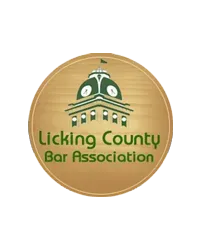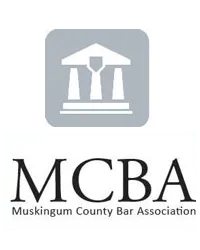Top 5 Mistakes When Working With an Estate Planning Law Firm

Working with an estate planning lawyer early can help you spot blind spots before they become costly. At Zellar & Zellar, Attorney at Law, Inc., we’ve seen how the right estate planning firm can clarify goals, align documents, and reduce family conflict. Whether you’re drafting your first will or refining a complex trust, an estate planning firm can help you coordinate assets, update beneficiaries, and prepare healthcare directives that reflect your values. If you own a small business, hold retirement accounts, or care for aging parents, estate planning ensures these moving parts fit together. And for families with college-age children or blended households, an estate planning lawyer can set up powers of attorney and guardianship plans that stand up when life changes. This guide covers the top five mistakes Newark, OH, residents make when creating an estate plan—and how a trusted estate planning law firm in Newark, OH, can help you avoid them from the start.
Leaving Your Will or Trust Outdated
Your
estate plan is a living set of instructions, not a one-and-done document. It needs attention whenever your life shifts.
A common error is letting years pass without revisiting your will or trust. Life events in Newark, OH, like marriage, divorce, the birth or adoption of a child, a new home in Licking County, selling a business, or the death of a beneficiary—often change what “fair” or “wise” looks like for your family. If your plan reflects who you were a decade ago, it may no longer match your relationships, assets, or intentions today.
Consider how outdated documents create friction:
- Children become adults with different needs or financial habits.
- Guardians named for minors move away or no longer wish to serve.
- A trusted friend named as executor develops health issues.
- Newly acquired property goes untitled in the trust, triggering probate.
Ohio law evolves, too. For instance, beneficiary designations and transfer-on-death options are flexible tools, but they must be coordinated with your will or trust. Without periodic reviews, your plan can become a patchwork of old instructions that conflict with updated accounts.
Practical steps:
- Review your plan every two to three years with an estate planning law firm—or sooner after any major life event.
- Keep a simple “change log” of major assets and accounts.
- Schedule annual reminders for yourself at tax time to consider whether your plan still matches your goals.
A seasoned estate planning lawyer can also help you anticipate life transitions—such as retirement accounts approaching required distributions—and align your plan before deadlines sneak up.
Failing to Name or Update Beneficiaries
Beneficiary designations are deceptively simple. Retirement accounts, life insurance policies, payable-on-death (POD) bank accounts, and transfer-on-death (TOD) registrations for real estate or vehicles in Ohio pass directly to named beneficiaries—bypassing probate. But if those designations are missing, out of date, or contradict your will, confusion (and potential litigation) often follows.
Common pitfalls:
- Naming a minor child without a trust, which can force court oversight.
- Forgetting contingent beneficiaries: if your primary beneficiary predeceases you, assets can default to your estate and end up in probate.
- Overlooking changes after divorce or remarriage.
- Mismatches between your will and your account forms that leave heirs disputing your intent.
Fixes with an estate planning law firm that protect your wishes:
- Confirm all designations annually. Most institutions allow secure online updates.
- Use clear “per stirpes” or “per capita” instructions where appropriate to ensure a deceased beneficiary’s share passes to their descendants as intended.
- Coordinate beneficiary designations with trusts to protect minors or beneficiaries with special circumstances, such as creditor concerns.
Overlooking Healthcare Directives and Powers of Attorney
Healthcare and financial decision-making during incapacity are as important as post-death instructions. Yet many people in Newark, OH, draft a will and stop there—leaving loved ones guessing during a medical crisis.
Key documents to include:
- Healthcare Power of Attorney: Names someone you trust to make medical decisions when you cannot.
- Living Will: Expresses your preferences for life-sustaining treatment if you’re terminally ill or permanently unconscious.
- HIPAA Authorization: Grants access to medical information to those who need it.
- Durable Financial Power of Attorney: Allows a trusted person to manage finances—pay bills, handle taxes, and manage investments—if you’re incapacitated.
Why this matters:
- Hospitals need clear authority quickly; otherwise, treatment decisions may be delayed.
- Without a financial power of attorney, family members may need to petition the probate court for guardianship, which takes time and resources.
- Adult children heading to college should also have healthcare and HIPAA forms, as parents lose automatic access when a child turns 18.
Practical tips from an estate planning law firm:
- Discuss your values with your named agents; clarity now prevents second-guessing later.
- Review your agents’ willingness and ability to serve every few years.
- Keep copies of directives where they can be accessed swiftly, and share them with your primary care physician.
Ignoring Tax Implications and Titling
Ohio no longer imposes an estate tax, but federal rules and income tax issues still matter. Poorly structured gifts, misunderstood titling, and missed opportunities can reduce what your heirs receive.
Areas where people stumble:
- Capital Gains and Basis: Passing highly appreciated assets at death can offer a step-up in basis for heirs. Gifting those assets during life might forfeit that tax efficiency.
- Retirement Accounts: Beneficiaries of IRAs often must withdraw funds under the federal 10-year rule, which can create unexpected tax burdens. Coordinating these accounts with trusts requires careful drafting to preserve flexibility.
- Titling Mismatches: Owning property jointly for convenience can inadvertently disinherit children from a prior marriage or send assets to the wrong branch of the family.
- Business Interests: Without a succession plan, death or incapacity can freeze operations, hurt valuation, and complicate buy-sell obligations.
What to do instead with an estate planning law firm:
- Inventory how every major asset is titled and how it will transfer—by deed, beneficiary designation, trust, or will.
- Revisit whether joint ownership fits your goals, or whether a trust or transfer-on-death instrument offers better control.
- Plan withdrawals from retirement accounts with a tax-aware lens to avoid bracket creep for heirs.
An estate planning lawyer can help you coordinate tax-smart strategies—balancing
probate avoidance, control, and long-term efficiency—so documents and account titles support each other.

Stashing Documents Without a Communication Plan
A beautifully drafted plan is only as good as its execution. Too often, families can’t find critical documents, don’t know which accounts exist, or are unsure who to call first after a death or incapacity.
Avoid these avoidable headaches:
- Unclear Executor Guidance: The person you choose needs practical instructions—where documents are stored, who your advisors are, and how to access digital accounts.
- Password Purgatory: Without a secure list or password manager, digital assets can be effectively lost.
- Paper That No One Can Find: A single safe deposit box can slow everything down if no one else is listed on the box or if the key is missing.
Create a simple communication plan with your estate planning law firm:
- A one-page “roadmap” for your fiduciaries that lists your key documents, accounts, contacts (including financial advisor, tax professional, and insurance agent), and storage locations.
- A secure digital vault or password manager, with instructions for your agents on access.
- A family meeting (or at least a call) to set expectations for roles, timelines, and your wishes. You don’t need to share dollar amounts—clarity about values and logistics usually matters more.
When to Call an Estate Planning Lawyer to Avoid These Pitfalls
Knowing when to get guidance is half the battle. Consider scheduling a review if any of the following applies to you.
Trigger moments to act:
- You bought or sold a home, vacation property, or small business in or around Newark, OH, or Licking County.
- You married, divorced, or entered a blended family arrangement.
- Your executor, trustee, guardian, or agent is no longer available, willing, or nearby.
- You opened new retirement or brokerage accounts, changed employers, or rolled over a 401(k).
- You moved to Ohio from another state, or your beneficiaries moved out of state.
- You were diagnosed with a serious medical condition, or you now care for an aging parent.
- Your children reached adulthood, or you welcomed grandchildren.
- It’s been more than two or three years since your last comprehensive review.
What a practical estate planning law firm review can include:
- Aligning your will, trust, and beneficiary designations.
- Refreshing healthcare directives and powers of attorney.
- Confirming asset titling supports your distribution goals.
- Cataloging digital assets and access protocols.
- Setting reminders for periodic check-ins so your plan stays current.
Putting it all together:
- Keep your plan concise but complete.
- Clarify who is doing what, and how to reach them.
- Document where everything lives—physically and digitally.
Strong estate planning protects families from surprise, confusion, and conflict. Clear decisions today spare loved ones from difficult choices tomorrow.
Take the Next Steps for Your Family’s Future
If you’ve recognized a gap in your plan, the best time to act is now. An estate planning lawyer can guide you through targeted updates, help you avoid common pitfalls, and keep your plan aligned with Ohio law and your family’s needs as they evolve. Zellar & Zellar, Attorney at Law, Inc., is ready to help you put practical, well-coordinated documents in place—so your legacy unfolds the way you intend. Call our estate planning law firm in Newark, OH, at (740) 452-8439 to start a thoughtful review or to create your plan from the ground up. From beneficiary designations to healthcare directives, an estate planning firm can streamline decisions and reduce stress for everyone involved. Whether you’re updating after a move, celebrating a new grandchild, or preparing for retirement, an estate planning lawyer can bring clarity to the process. Ready to protect what matters and give your family peace of mind? Reach out to our estate planning lawyer, and let’s build a plan you can count on.



















